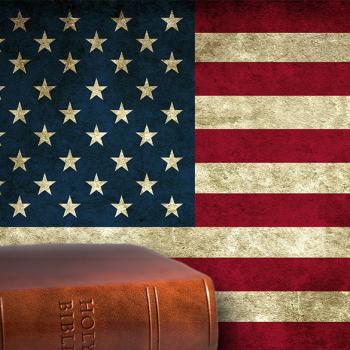
The Social Gospel movement emerged in the late 19th century in America as a response to the social problems caused by industrialization and urbanization. Christian principles – helping the poor, tackling inequality and injustice – was the driving force of the Social Gospel. Unfortunately, the changes the Social Gospel helped bring were short lived. (read about it here)
The rise of Fundamentalism in America was the first blow to the Social Gospel. While on its last legs, the two World Wars sealed the fate of the Social Gospel for the majority of Protestantism in America.
The Rise of Fundamentalism
Fundamentalism was a direct backlash to the modernization of America. As the country was in the middle of growing pains, the once simple Christianity was starting to become more fractured. Walter Rauschenbusch, a major contributor to the Social Gospel, saw the Church as being a social moving force. This view of salvation was possible by improving the lives of people where they were – on earth as it is in heaven. (read about him here)
The Fundamentals: A Testimony to the Truth was a series of essays and treatises published throughout the 1910’s. The writer’s wanted to create a new kind of creed – what a true Christian believes. This collection denounced liberal theology, critical readings of the Bible, and ‘circled the wagons’ on almost every topic the Bible touched upon. Much of what you think of as American Christianity has roots in this collection.
This fear of modernism had lasting effects. The Church created parallel institutions to teach Fundamentalist ideas. Denominations that were working to explain modern advances like Evolution were viewed with suspicion.Fundamentalism saw this work with science and changing culture as ‘watering down’ the true Christianity. All of this led to the separation of Hyper-Conservative Christianity and the concentrating effects of the theology.
It’s All About Politics
The Great Depression was a blow to the Social Gospel’s momentum. All of the progress that was being made throughout the 1910’s and 1920’s came to a standstill as Americans tried to live. It seemed that God’s wrath for the decadence of the people was finally being exacted. While the Social Gospel continued to move throughout the Great Depression – with FDR citing many of its tenants – it was ultimately replaced from American daily life.
The World Wars hit the final nail in the coffin. The Social Gospel’s emphasis on pacifism also became less popular during this time. Many people felt that war was necessary to protect their country and way of life. The devastation and horror of the wars shifted people’s focus away from social reform and towards survival.
The golden city of Heaven being built on earth was hard to imagine after the trenches and two atomic bombs. A world where there was no more crying and no more pain was impossible after the Holocaust. C.I. Scofield’s Scofield Reference Bible had been on the shelves for decades promoting Fundamentalist readings and the return of Israel. It seemed that he was right and American Christianity turned to the right.
Post-War America
American Christianity has settled into a conservative framework since Billy Graham in the 1950’s and the rise of the Religious Right in the 1970’s. This flavor of Christianity sees the Social Gospel as unnecessary at best – and harmful or heretical at worst. The idea that Christianity should focus on improving the lives of people on earth is not a priority for Fundamentalism or the current Conservative Evangelical Church. The souls of the individual are paramount – and their eventual disembodied eternal resting place the most important objective.
Martin Luther King Jr. was a major proponent of the Social Gospel. He saw the need for Christians to use the powers they had to help those who were oppressed. Howard Thurman’s Jesus and the Disinherited showed Jesus in the midst of the suffering of those who didn’t have a voice. James Cone’s work at Union Theological Seminary solidified Black Liberation Theology and the role that Christianity has to take power from the powerful and uplift those in need.
What Now?
The Social Gospel has had a rebirth in the last few decades. As corporations mistreat their labor force and the wealthy hoard money, the need for the Social Gospel becomes more apparent. But despite its decline, the Social Gospel had a lasting impact on American Christianity and social activism. Its emphasis on social justice and the application of Christian principles to social issues continues to inspire many today.













